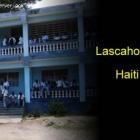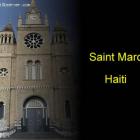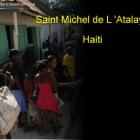ADVERTISEMENT
immigration
Immigration is a major issue among Haitian. It is estimated that over 4 million Haitians are currently living outside of Haiti
Haiti, One of the Countries with Highest U.S. Visa Fraud Cases
Haiti and the Dominican Republic are the two countries in the Caribbean with the maximum cases of visa frauds. Recently, on Friday, May 15, Robert Hannan, the US Consul General in Haiti has reported about 11,000 cases of fraud visa applications where the applicants have purported wrong information about their family, financial and professional backgrounds.
The US Consul General has urged that every visa applicant must provide only truthful information on their visa applications. The US department does not authorize any intermediary person or authority for assisting aspiring applicants or to receive any fees on behalf of the department or receive any money to provide information for sharing specific knowledge or information about visa. Every applicant should contact the concerned US department directly for all visa updates. Any person claiming to work for the U.S. Embassy over the telephone should be considered as fraudulent. The U.S department encourages common Haitian people to avoid these criminals and visit the consular officer at the U.S department and discuss about his plan to visit the United States. This is the only way; there is no other way of getting a visitor visa. Applicants for U.S. visas are required to appear in person for a scheduled visa interview at the U.S. Embassy.
Polk County, Home to Some 10,000 Haitians
Haitians started moving to Polk County back in the 1980s. The early immigrants were citrus pickers who came from impoverished backgrounds to work in the orange groves. After a while, when they saved enough, brought their families and friends to join them to live and work in the Polk County. And till then the process never stopped.
Today, Polk County is the home to some 10,000 Haitian descendents, many of whom never had visited their homeland. The local Haitian Youth Association celebrates Haitian Flag Day event in the honor of the Caribbean nation's independence from French colonialism. But the Saturday event (May 16, 2015) of flag hosting was actually performed with many fold objectives. It was an opportunity to teach the kids about their own rich culture who have born on this American soil. Once, the Haitian flag was tricolored... red, white and blue. When the country got independence from the French, they forced all the white French colonizers to leave. To signify white colonizers leaving the country, white was then taken out, leaving only red and blue on the flag. A ribbon at the bottom of the national flag says "L'Union Fait La Force" (Unity Makes Strength) which every young Haitians must bear in mind.
Solidarity Fund for Returnees from Dominican Republic
On Thursday, June 18, during a press conference, Emmanuel Menard, the Director General of the National Old Age Insurance Office (ONA) has announced the creation of a solidarity fund (FONDSONA) valuing over 2 million gourdes for the expelled Haitians. The fund has been collected through voluntary contribution from the salaries of their employees to assist the repatriated Haitians from the Dominic Republic.
The Director General of ONA has said he is proud of his employees' generous gesture and hopes other organizations to follow their steps. The Group "Haïti Chérie" (Dear Haiti), an entity in the Haitian private sector, has also announced the creation of a civic solidarity fund within the framework of upcoming repatriations of Haitian citizens. The fund initially consists an amount of one million gourdes. Moreover, this group has invited all national authorities to take necessary effective measures to improve the investment climate in the country.
Montreal Protest against Possible Deportation of Haitian Migrants
On May 31, 2015, nearly 500 people assembled and marched from the St. Michel metro station in Montreal to Jarry Park to protest against the possible deportation of thousands of Haitian migrants who were so far protected by a moratorium that prevented their deportation and were allowed to stay in Canada on humanitarian grounds. A Circular dated June1, 2015, issued by the Canadian government revoked their current status as 'refugee'. Although, the Canadian government had earlier facilitated an application process to continue with their current status, most could not afford the prescribed application fees of $550. Without any identification document, they are devoid of all basic amenities, health services, education facilities or authorized employment opportunities. The critics of the moratorium lift are of opinion that the government should find proper ways to integrate undocumented migrants into Canadian society.
Repatriation Process Described By Dominican Officials
Major General Rubén Darío Paulino Sem, the new Dominican Director of Immigration has confirmed that from Wednesday, June 18, 2015, there would be forced deportation of hundreds of thousands of Haitians and several Dominicans of Haitian descent, including many children, from the Dominican Republic who are not registered under the National Plan of Regularization of Foreigners (PNRE) before the date that expired on June 17, 2015, at 7:00 pm. They will be subject for repatriation to their countries of origin as per the Dominican constitution and laws governing its migration policy. The process of repatriation will take place between 6:00 am and 5:00 pm from Monday to Saturday, excluding Sundays and public holidays. Primarily the operation will be controlled from the General Directorate of Migration (DGM) with necessary supports from the post at the Joint Operations Center (COC) of the Dominican Ministry of Defence (MIDE).
Seven Deportation Centres at the Haiti-Dominican Border
As per the Dominican government's recent announcement on June 17, 2015, tens of thousands of Haitians and several Dominicans of Haitian descent could be forced to leave the Dominican Republic. As per a controversial court ruling on October 2013, it was held that the children born to undocumented immigrants or who are not born of at least one parent with "Dominican blood" would be retroactively stripped of their citizenship since 1929. The decision left around a quarter of a million people effectively stateless. Haitians are 90% of the Dominican Republic's immigrants and 5.4% of the country's total population of whom only 10% have legal status.
Dominican Republic to Deport Thousands of Haitians
A controversial ruling by the Dominican court, almost 200,000 Dominican-born people of Haitian descent are facing the risk deportation from the Dominican Republic. The new law that came into effect since the May 22, last year, had provided the scope for re-issuance of nationality documents for some Haitian individuals born in the Dominican Republic and gave others the possibility of eventual citizenship. However, a very small number of residents have been able to meet the eligibility criteria. The Haitians are 90% of the Dominican Republic's immigrants and 5.4% of the country's total population of whom only 10% have legal status. Over the last century, countless Haitians have crossed the border and went to the Dominican Republic in search of earning opportunity or to escape political violence. As per Interior Ministry's estimate, there could be about 500,000 prospective applicants for residency of whom about 50,000 people would have a fair chance of granting citizenship. However, as of the deadline on Wednesday, June 17, about 250,000 people have been registered and as per the officials, only about 10,000 have submitted required documents successfully. Many fearful migrants have waited in the queues and have spent as long as four sleepless nights outside the government offices in the capital of Santo Domingo to submit residency applications as the deadline for registration looms. Because, the Minister of the Interior and Police, Monchy Fadul had assured that those who had remained in the queue within the specified area and time will still be attended after the deadline.
Haitian Authorities & Returnees from Dominican Republic
Although President Martelly has declared that Haiti has prepared itself "to stand up and welcome the return of its deported brothers from the Dominican Republic with dignity," but there is little evidence of this determination on this side of Haitian border; there is little infrastructure on the ground in Haiti to welcome the 200,000 destitute refugees. After a week of the deadline, two reception centers at Ouanaminthe and Malpasse in Haiti are still under construction to welcome 200,000 compatriots who could not regularize their immigration status.
On Thursday, June 18th, Marie Yolène Gilles, the Programme Manager of the National Network Defenses of Human Rights (RNDDH) has revealed that no structure has yet been built on the Haitian side of Dominican border other than a poster notifying the areas of proposed shelters. The GAAR (Groupe d'Appui aux Rapatriés & Réfugiés) has only traced two trucks, one tractor, two generators and two guards and a placard indicating : Welcome" on the 3 project sites located in Malpasse reserved for the reception of future returnees. Even in Last May, the Haitian government had continued its assurance that there would be two buildings to welcome our compatriot.
Haitians Represent 15 Percent Of The U.S. Black Population
A recent report dated April 9, 2015, on The Washington Post reveals that a record 3.8 million foreign-born blacks now live in the United States. The share of the black population, largely from Africa and Caribbean has grown up to 8.7% in 2013 from 3.1% of 1980. Out of that, the share of the Haitian immigrant population was 1.5% in 2014 and the number of the total Haitian immigrant population was computed at 606,000 in 2012.
At the earlier time, the immigrant population was very small, estimated at approximately 5,000 in 1960. The number started rising when they began arriving in large numbers following the collapse of the Duvalier dictatorship in the late 1980s. An estimate hints that by 2060, 16.5% of the U.S population will be foreign born. The tendency to concentrate with such population has been more in cities that already had higher numbers of black populations. In Miami, 34% of its black community was born elsewhere. Such figure is 28% in the case of New York metro. The influx of immigrants has started since 2000. Most of the 40 million U.S blacks have roots in Africa and many of their ancestors were brought in as slaves during the 18th century, and by the end of that century, the number of blacks was nearly 20% of total U.S population. Haitian immigrant population in the U.S, is the 4th largest immigrant group from the Caribbean, following Cuba, the Dominican Republic, and Jamaica. The higher number of Haitian immigrants can also be found in France (77,000), Canada (74,000) and Bahamas (40,000). As per the Center for Immigration Studies, 2008, the top states of Haitian immigrant settlement in the U.S are: Florida (251,963; 46%), New York (135,836; 25%) New Jersey (43,316; 8%), Massachusetts (36,779; 7%), Georgia (13,287; 2%), and Maryland (11,266; 2%). There are 310,000 U.S.-born Americans who have at least one parent born in Haiti.
Haitian Government Obstacle For Haitians To Have Dominican Papers
Gabriel del Río, the President of the CASC (Autonomous Trade Union Confederation Class) has recently declared that the aloofness of the Haitian authority in providing identity documents to the irregular Haitian workers, necessary to enroll themselves in the National Plan for the Regularization of Foreigners (PNRE) in DR, is causing the biggest obstacle. Many Haitians living in the Dominican Republic did not have any document that would enable them to register. Those who went back to Haiti for procuring them, were returned mostly empty handed. Such situation creates opportunities for the counterfeiters and it is no wonder that many Haitians were found in possession of forged identity documents.
Our objective is to share with you news and information about Haiti and the people of Haiti. Traditions, habits and the way we were or grew are alive in this site. We highly recommend that you Subscribe to our Newsletter and also share with us some of the things that are memorable and made us unique people.

 Lascahobas, Haiti
Lascahobas, Haiti  Informative Marketing and Advertising in the Haitian Community
Informative Marketing and Advertising in the Haitian Community  Saint Marc, Haiti
Saint Marc, Haiti  Something to think about
Something to think about  Saint Michel de L 'Atalaye
Saint Michel de L 'Atalaye